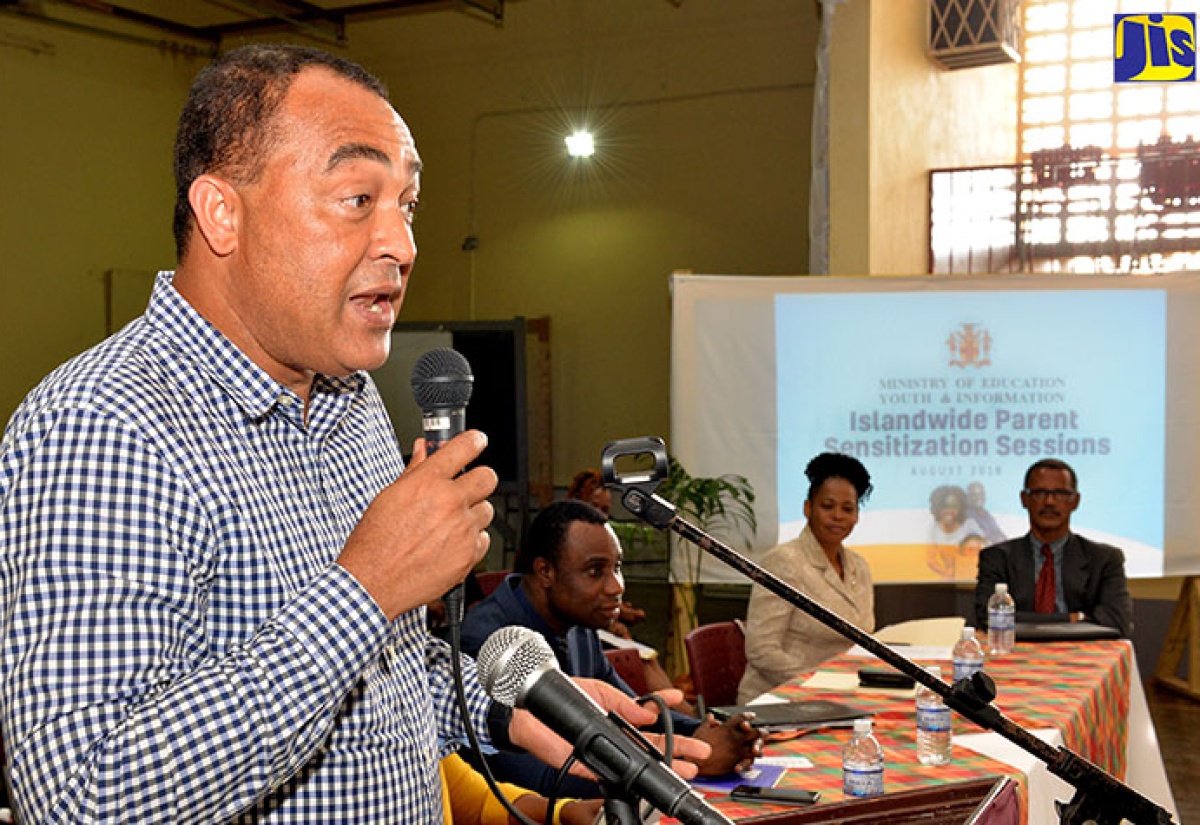Minister Takes Health and Wellness Message to Parents and Schools
By: , August 30, 2018The Key Point:
The Facts
- The Minister maintains that a big part of the education system is a holistic approach to education, which must not only include academic knowledge but also enhance development from a health and wellness perspective.
- That is why, come January 2019, the Government will be placing restrictions on sugary drinks made available to children in schools.
The Full Story
Health Minister, Dr. the Hon. Christopher Tufton, is continuing his quest to make Jamaicans less likely to develop chronic lifestyle diseases by partnering with the Ministry of Education, Youth and Information to take his health and wellness message to schools and parents.
The Minister maintains that a big part of the education system is a holistic approach to education, which must not only include academic knowledge but also enhance development from a health and wellness perspective.
That is why, come January 2019, the Government will be placing restrictions on sugary drinks made available to children in schools.
Addressing a Parent Sensitisation and Consultation Session at Glenmuir High School in Clarendon on August 28, the Minister said the challenge to be confronted and instilled in the students is that they must be healthy to become productive adults.
“There are two approaches to healthcare – the curative side – the number of available hospital beds and length of waiting time, and the preventative side, which deals with what we need to do to reduce the risk of our children and ourselves becoming ill. When you become ill, it creates pain and suffering, it causes productivity lapses, it costs money, so illness is not a good thing,” Dr. Tufton told the audience.
He noted that there is scientific evidence showing that younger-age members of society are getting more vulnerable to illness because of obesity. He listed salt, sugar, fat, alcohol, tobacco, what is consumed and in what quantities, combined with the lack of physical activity, as the culprits that cause young people to become more vulnerable and susceptible to illnesses.
Describing the situation as a crisis, Dr. Tufton said seven out of every 10 Jamaican deaths result from non-communicable/lifestyle diseases such as arthritis, diabetes, cardiovascular problems, stroke or cancer.
“The problem is, people are acquiring these diseases at a younger age, because of our lifestyle and what we eat. Physical inactivity is also now a major issue among our younger population. The last survey done of our young population showed obesity levels doubling among the young male population and close to 70 per cent among our females over a seven-year period,” Dr. Tufton said.
He said that the Government would be partnering with parents to improve the health of their children.
“Part of the solution is a health and nutrition policy for schools in the near future, which will guide the types of foods available at the canteens for children to snack on or eat for lunch,” Dr. Tufton said.
“Water is, by far, more nutritious to you and your children than branded sugary drinks. You are doing children a favour when you give them water with dinner instead of a sugary drink,” he said, adding that a fruit should be given to children instead of salty and sweet snacks.
Encouraging parents to support the measures being taken, Dr. Tufton noted that in many countries around the world, restrictions are being applied to drinks sold in schools because research is showing the negative impact it is having on health.
He also underscored the importance of physical activity at a time when most young people spend all their time on their phones, computers, laptops, iPads and other gadgets, rather than doing physical exercise.


